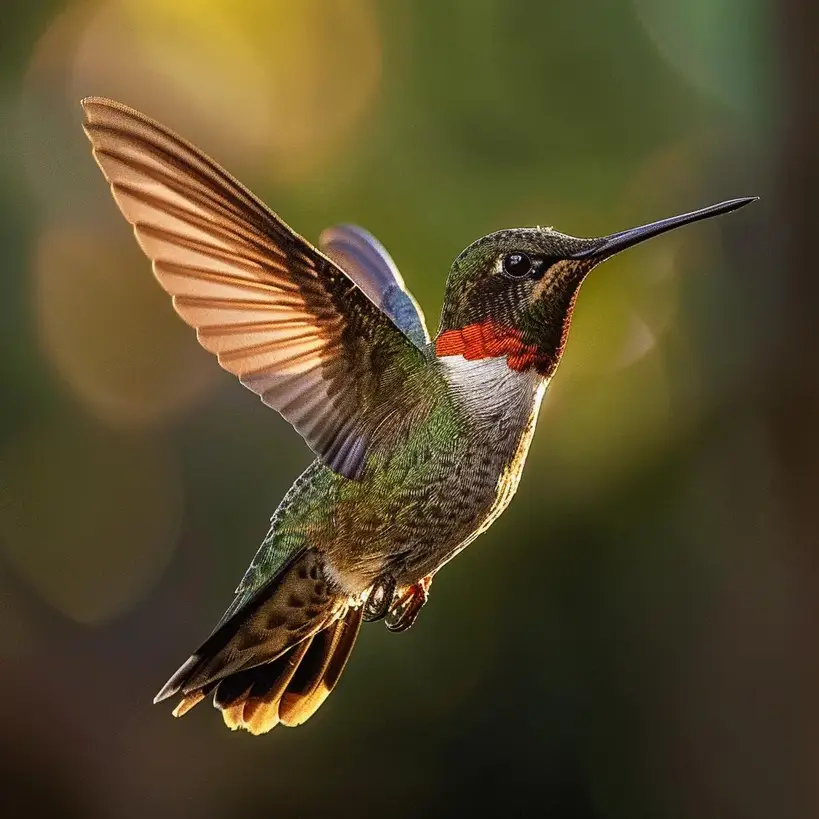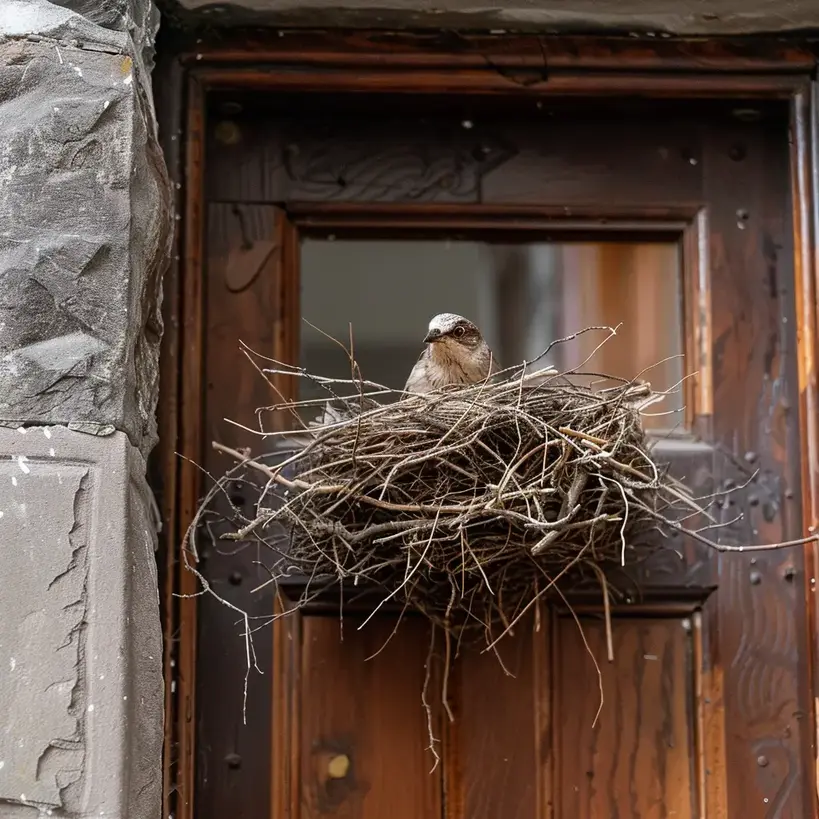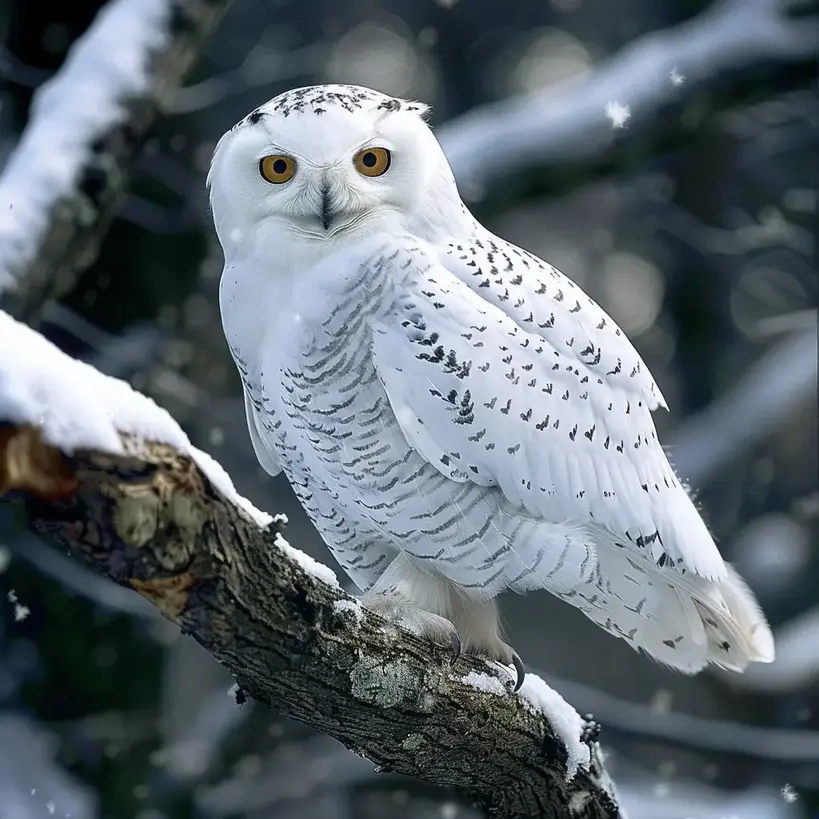In the heart of Africa, amidst the rustling savannah grasses and under the watchful gaze of ancient baobab trees, roams a peculiar yet captivating bird - the Guinea fowl.
These feathered guardians, with their striking plumage and distinctive calls, hold a sacred place in the folklore and spiritual beliefs of many indigenous tribes across the continent. Beyond their physical presence, these enigmatic creatures are revered for their symbolic significance as protectors and messengers from the spirit realm.
Join us on a journey through time and space as we unravel the intricate web of beliefs surrounding these enigmatic creatures and explore how their presence continues to resonate in both tangible and ethereal realms alike.
Contents
- 1 I. Sacred Stories: How Guinea Fowls Became Guardians of Spirituality
- 2 II. From Folklore to Spirituality: Exploring the Deeper Meaning of Guinea Fowl
- 3 III. Spiritual Connections: The Hidden Messages Through Guinea Fowl Encounters
- 4 IV. The Secret Language of Guinea Fowl: What Are They Saying?
- 5 Final Thought
I. Sacred Stories: How Guinea Fowls Became Guardians of Spirituality
The journey of guinea fowls becoming symbols of spirituality and guardianship weaves through ancient traditions, cultural beliefs, and the inherent characteristics of these unique birds themselves. One of the most captivating tales revolves around how guinea fowls became recognized as guardians of spirituality.
1) African Lore: The Watchful Protectors
In many African traditions, the guinea fowl is revered for its vigilant nature. According to folklore, the guinea fowl was chosen by the spirits to serve as a guardian due to its keen eyesight and loud call, which could alert the people to impending danger or spiritual presence.
It is said that the guinea fowl’s speckled feathers represent the stars, a symbol of guidance and protection from the ancestral spirits who watch over their descendants from the heavens. In this way, the guinea fowl bridges the earthly realm with the celestial, acting as a protector and guide.
2) The Egyptian Connection: Symbols of Resurrection
The ancient Egyptians associated the guinea fowl with Osiris, the god of the afterlife, resurrection, and fertility. The bird’s black and white feathers symbolized the duality of existence—life and death, light and shadow—and its capacity for loud vocalizations was seen as a means to communicate with the divine.
In Egyptian mythology, the guinea fowl was believed to possess the secrets of rebirth and immortality, making it a guardian of spiritual mysteries and a guide for souls navigating the afterlife.
3) Greek and Roman Mythologies: The Sacred Bird of Hera and Juno
In Greek and Roman mythologies, the guinea fowl was sacred to Hera (Juno to the Romans), the queen of the gods and the goddess of marriage and birth.
The bird was said to have been created by Hera as a gift to guard her sacred temples and to symbolize the fidelity and unity of marriage. The guinea fowl’s presence was believed to bless couples with fertility and prosperity, protecting them from harm and ensuring the favor of the goddess.
4) Native American Stories: The Messenger Between Worlds
Among certain Native American tribes, the guinea fowl is viewed as a messenger between the physical world and the spiritual realm. Its unique call is thought to carry messages to the spirits, while its ability to eat harmful insects symbolizes the purification of negative energies.
The guinea fowl, with its distinctive appearance, is seen as a creature of both worlds, capable of traversing the boundaries between the seen and unseen, and thus serving as a guardian of spiritual balance and harmony.
5) Modern Interpretations: Guardians of the Home and Spirit
In contemporary spiritual practices, the guinea fowl continues to be revered as a guardian of the home and spirit. Its feathers are used in rituals for protection, cleansing, and communication with the spiritual realm.
The bird’s symbolism has evolved to encompass themes of community, resilience, and the importance of voice, reminding us of our connection to each other and the natural world. The guinea fowl’s role as a guardian of spirituality is celebrated in ceremonies that honor its wisdom and protective energy.
II. From Folklore to Spirituality: Exploring the Deeper Meaning of Guinea Fowl
The guinea fowl, with its distinctive appearance and unique behaviors, holds profound spiritual significance in various cultures around the world. Its symbolism is rich and multifaceted, embodying themes of protection, fertility, resurrection, and community. Here are some of the top spiritual meanings attributed to the guinea fowl:
1. Protection and Vigilance
Guinea fowls are renowned for their loud calls, especially when they sense danger. This behavior has positioned them as symbols of protection and vigilance in many spiritual and cultural contexts. They are believed to possess an innate ability to foresee or detect unseen threats, offering a spiritual reminder to remain alert and aware of our surroundings.
In a metaphorical sense, the guinea fowl teaches us to be watchful over our personal space and to safeguard our spiritual well-being, encouraging an attitude of mindfulness and preparedness against life’s unpredictabilities.
2. Community and Social Bonds
The social nature of guinea fowls, often seen moving in flocks, underscores the importance of community and social bonds. They symbolize the strength found in unity and the value of nurturing relationships with those around us.
In spiritual terms, the guinea fowl reminds us that we are not isolated beings but part of a larger network of social connections that provide support, warmth, and a sense of belonging. It encourages us to embrace communal living, share our lives with others, and contribute positively to our communities.
3. Resilience and Resourcefulness
Guinea fowls are adaptable birds, capable of thriving in diverse environments. This adaptability is seen as a sign of resilience and resourcefulness, inspiring us to remain flexible and innovative in the face of challenges.
Spiritually, the guinea fowl symbolizes the ability to overcome adversity through ingenuity and determination. It teaches us to use our surroundings to our advantage, to be creative in solving problems, and to bounce back from setbacks with renewed strength and vigor.
4. Voice and Communication
The loud and unmistakable call of the guinea fowl is not just a warning signal; it also represents the power of voice and communication. Spiritually, it emphasizes the importance of speaking out, expressing our truths, and being heard.
The guinea fowl encourages us to use our voice for good, to communicate effectively, and to share our thoughts and feelings openly. It serves as a reminder that our words have power and that open, honest communication is key to understanding and harmony.
5. Fertility and Abundance
In many cultures, guinea fowls are associated with fertility and abundance, their presence often heralding prosperity and well-being. This symbolism is rooted in their productivity and their role in pest control, which helps ensure bountiful harvests.
Spiritually, the guinea fowl represents the potential for growth, the promise of new beginnings, and the abundance that flows from living in harmony with nature. It invites us to embrace a mindset of abundance, to be open to receiving blessings, and to cultivate gratitude for the earth’s generosity.
6. Resurrection and Immortality
The guinea fowl’s connection to resurrection and immortality is deeply embedded in ancient myths and spiritual beliefs. Its migratory patterns and the cyclical nature of its life processes symbolize the themes of death, rebirth, and eternal life.
Spiritually, the guinea fowl reminds us of the soul’s journey through different realms and the continuous cycle of renewal and transformation. It offers hope in the face of loss and reassures us of the enduring nature of the spirit.
7. Healing and Nurturing
Finally, the guinea fowl is seen as a symbol of healing and nurturing, its presence evoking a sense of comfort and care. In some traditions, the guinea fowl is associated with medicinal properties and the healing arts.
Spiritually, it represents the healing journey, the process of restoring balance and harmony within oneself and in one’s relationships. It encourages nurturing the body, mind, and spirit, and serves as a reminder of the healing power of love, compassion, and kindness.
III. Spiritual Connections: The Hidden Messages Through Guinea Fowl Encounters
Encounters with guinea fowl, whether in dreams, in the wild, or even in art, often carry hidden messages and symbols that resonate deeply within the spiritual realm. These encounters are not merely coincidental but are imbued with significance, offering insights, guidance, and reflections on one’s life journey.
Encounters in the Wild
Seeing a guinea fowl in the wild can be a striking experience, given their distinctive appearance and behavior. Such encounters are often interpreted as signs to heed the call of vigilance and awareness in one’s life. The guinea fowl’s alertness to its surroundings serves as a reminder to be conscious of the subtle energies and influences that affect our daily lives. It may also signal a time to protect what is valuable and to stand guard over one’s personal space and peace of mind.
The social behavior of guinea fowls, moving in groups, emphasizes the importance of community and the strength found in unity. An encounter could suggest that it’s time to reconnect with your community, cherish your relationships, and remember that you are never alone in your struggles or triumphs.
Dreams Featuring Guinea Fowl
Dreaming of guinea fowl holds profound spiritual significance, often related to the themes of protection, communication, and transformation. A guinea fowl appearing in a dream might symbolize the need to guard against complacency and to be more vigilant about changes or opportunities that are approaching.
It could also highlight the importance of clear communication, urging you to express your thoughts and feelings more openly or to listen more closely to the messages being conveyed by those around you.
If the guinea fowl in your dream is calling loudly, it may be a sign to pay attention to your inner voice and intuition. The dream could be encouraging you to trust your instincts and to speak up about issues that matter to you.
Guinea Fowl Encounters in Art
Artistic representations of guinea fowl, whether in paintings, sculptures, or other mediums, carry symbolic meanings related to the bird’s spiritual attributes.
Encountering guinea fowl in art might draw your attention to its symbolic qualities, such as resilience, resourcefulness, and the beauty of diversity (as reflected in the bird’s speckled feathers). It can inspire you to embrace your uniqueness, to adapt to changing circumstances with grace, and to appreciate the varied tapestry of life.
Art featuring guinea fowl can also serve as a reminder of the interconnectedness of all things and the importance of maintaining balance between the different aspects of your life. It may encourage you to seek harmony within yourself and with the world around you.
IV. The Secret Language of Guinea Fowl: What Are They Saying?
The secret language of guinea fowls, a concept rich in spiritual and symbolic interpretation, reveals a complex tapestry of meanings that transcend their natural behaviors and vocalizations. This language, observed through the lens of spiritual symbolism, offers insights into the hidden messages and guidance these birds provide to those attuned to their significance.
Vocalizations as Spiritual Alerts
Guinea fowls are renowned for their loud, distinctive calls, which serve not only as a means of communication within their flocks but also as alerts to potential danger. Spiritually, these vocalizations can be interpreted as reminders to remain vigilant and aware of the subtler energies and signals in our lives.
Just as guinea fowls call out to warn their flock, their vocalizations can symbolize the need for spiritual alertness, urging individuals to pay attention to intuition, divine messages, or warnings that may guide them away from harm or towards opportunities for growth.
Social Behavior as a Model for Community
The social behavior of guinea fowls, always found in groups, highlights the importance of community and collective support. This aspect of their secret language speaks to the human need for social connections and the strength derived from belonging to a community.
Spiritually, it underscores the value of unity, cooperation, and mutual support, encouraging individuals to nurture their relationships and to find strength in collective endeavors and shared spiritual journeys.
Movements and Migration as Guidance
The movements and migratory patterns of guinea fowls, seemingly random to the untrained eye, can also be part of their secret language, offering guidance on when to act, retreat, or change direction in life.
Observing guinea fowls can inspire individuals to consider the timing and direction of their own movements and decisions, reminding them that there is a season for every purpose under heaven, as echoed in the wisdom of Ecclesiastes 3.
The Call to Resilience and Adaptation
Guinea fowls thrive in a variety of environments, demonstrating remarkable resilience and adaptability. This aspect of their secret language symbolizes the human capacity to overcome adversity, to adapt to changing circumstances, and to find ways to thrive regardless of the challenges faced.
It encourages a spirit of resilience, urging individuals to remain flexible and open to change, trusting in their ability to navigate life’s uncertainties with grace and strength.
Final Thought
In conclusion, the spiritual meaning of Guinea Fowl holds a significant place in various cultures and traditions around the world. These unique birds symbolize protection, guidance, and the ability to adapt to different situations.
Whether encountered in dreams or observed in nature, these birds serve as messengers of wisdom and insight. Embrace the presence of Guinea Fowl in your life and remain open to the messages they bring.


